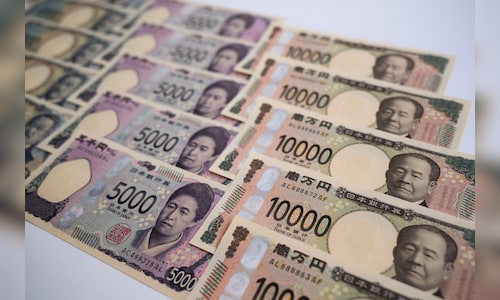Japan’s currency dropped against all of its major peers on Monday, as investors wagered that Takaichi’s pro-stimulus stance would result in a slower timeline for the Bank of Japan’s policy tightening. Delayed hikes could well tempt traders back into a strategy known as the carry trade, where they borrow the low-yielding yen and buy currencies such as the Brazilian real or Australian dollar that offer higher returns.
“The market is likely to conclude that the yen carry trade is back on” in the short term, said Jane Foley, head of foreign exchange strategy at Rabobank.
The election outcome sent the yen tanking as much as 2% against the dollar on Monday, while bonds slumped on concern that Takaichi will unleash more government spending and fan inflation. Many market players note too that she has previously criticised the BOJ’s moves to raise interest rates, and could advocate slower policy tightening if she takes office.
Etsuro Honda, who advises Takaichi on economic policies, said Monday that a move by the BOJ to raise interest rates this month would likely come too soon after the formation of Takaichi’s administration and would be better timed in December.
All that’s spurred traders to slash policy-tightening wagers — swaps now see a 19% chance of a move at the BOJ’s Oct. 30 meeting, compared to about 57% in the run-up to the leadership vote. Should the BOJ opt to go slower on increasing the nation’s 0.5% interest rate — already among the lowest in the world — it will reassure would-be carry traders that the yen will stay a cheap source of funding.
Masayuki Nakajima, senior currency strategist at Mizuho Bank in London, is among those who see a good chance that yen selling will accelerate. The currency may well drop toward 180 per euro, after it plumbed a record low on Monday, and could also come under pressure versus other Asian currencies, according to him.
“If Takaichi continues to argue that a weak yen will not pose negative issues for Japan’s economy, and asserts her position that the BOJ should not raise rates, the carry trade could resume, and the yen could weaken broadly,” Nakajima said.
Strategists at Deutsche Bank AG said they had decided to close their bullish yen position, as “positive catalysts seem to be lacking right now, given the political surprise.”
Read Also: Donald Trump says ‘happy’ to work with Democrats to end US government shutdown





